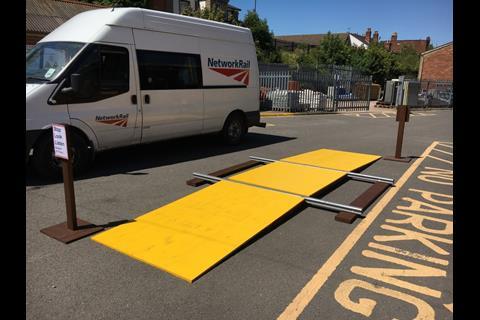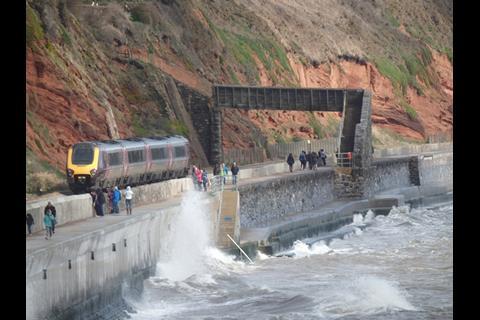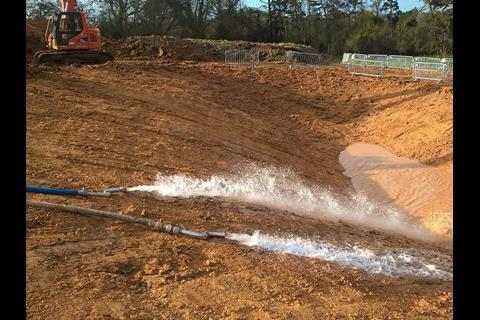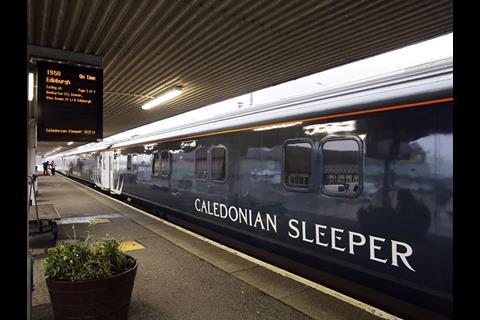The National Infrastructure Commission published its first quinquennial National Infrastructure Assessment on July 10, making recommendations for meeting long term needs up to 2050. Transport recommendations include a call for a greater focus on cities, with devolution of powers and budgets.
On July 9 the Rail Delivery Group announced that plans for the December 2018 timetable change had been reviewed in the light of the disruption which followed the introduction of the May timetable. Most operators will still introduce a new timetable, but CrossCountry, Govia Thameslink Railway, GWR, London Overground, Northern, South Western Railway, TransPennine Express and West Midlands Trains are to continue their May timetables albeit with 'minor adjustments and small locally based changes that have limited wider impact'.
Network Rail has confirmed that CEO Mark Carne will retire on August 13 with Andrew Haines taking over on August 14. Carne will continue working for NR until early September, finishing off his work on the Control Period 6 funding settlement for 2019-24. Meanwhile, David Noyes, former CEO of Cunard and senior director at BA, has joined the NR board as a non-executive director. Michael O’Higgins is retiring and leaving the board on August 31.
On July 6 the Department for Transport published the prospectus for the next Cross Country franchise. This is intended to set out the government’s aspirations for the franchise, assist prospective bidders in determining whether they wish to seek prequalification, and to provide early guidance on the areas to be considered when preparing bids.
Greater Anglia technical staff are to spend six months with Stadler in Switzerland, the Netherlands, Poland, Germany, the Czech Republic and Romania to learn about maintaining the Swiss company’s trainsets ahead of the arrival of 58 Flirt UK multiple-units. 'It’s the first time that Stadler has run this type of training for a UK client, and we are right behind it', said Hein van der Schoot, Managing Director of Stadler Rail Service for the UK & Netherlands. 'It’s relatively long and pretty intense, but having locally trained people who are already experts on servicing and maintaining the new fleet, as soon as it comes in, benefits everybody in the long run.'
The Laser Misuse (Vehicles) Act came into force on July 10, bringing in penalties of up to five years in prison and unlimited fines for people who direct a laser towards a vehicle including a train in a way which does, or is likely to, dazzle or distract the person in control. ‘It is dangerous and potentially deadly, as well as stupid, to shine a laser pen into the eyes of any driver’, commented ASLEF General Secretary Mick Whelan. ‘We hope this acts as a deterrent to such behaviour, and prevents what could be a catastrophe.’
The East Midlands HS2 Partnership is to receive up to £1·8m to further develop proposals for rail, tram and bus connections to the future Toton hub station.
Thomson Ecology has been awarded the C2a mitigation package for the Central Section of High Speed 2 Phase 1 between Uxbridge in London and Southam in Warwickshire. The contract includes the construction of six mitigation sites to create habitats for amphibians and reptiles, and three years of maintenance until November 2020 to ensure they mature.
Network Rail’s Wales & Borders level crossing and maintenance teams have built a model foot crossing which can be used to replicate two different types of crossing during safety training sessions at schools.
Caledonian Sleeper has opened lounges at Dundee, Fort William and Leuchars stations, using funding from the Scottish Stations Investment Fund. They have accessible shower and toilet facilities, and Caledonian Sleeper hosts to serve drinks and snacks to passengers before and after their journey. Lounges in Stirling and Perth are scheduled to open later this summer.
Network Rail has awarded AEI Cables a contract to supply signalling cables meeting Network Rail Specification NR/L2/SIG/00005.
The Office of Rail & Road called on Network Rail to improve its planning, procedures and technology on July 5 when it published its conclusions regarding the infrastructure manager's contribution to the poor performance suffered by South Western Railway passengers. ORR found that despite the number of incidents remaining stable, it is also taking longer to restore normal services because contingency plans had not been updated since 2011, processes were not always followed and 'lessons learned' reviews did not always happen.
Network Rail is carrying out a procurement exercise to establish a framework for consultancy services covering behavioural assessments; ISO44001 deployment; alliance mobilisation support; culture change collaboration intervention support; relationship management; and supporting projects and regions through audits.
The Department for Transport’s Interoperability & Safety Team is to hold a workshop on July 27 to provide an overview of legislation which is being drafted to ensure continuity in the framework for railway safety and train driver licencing in a ‘No Deal’ Brexit.









